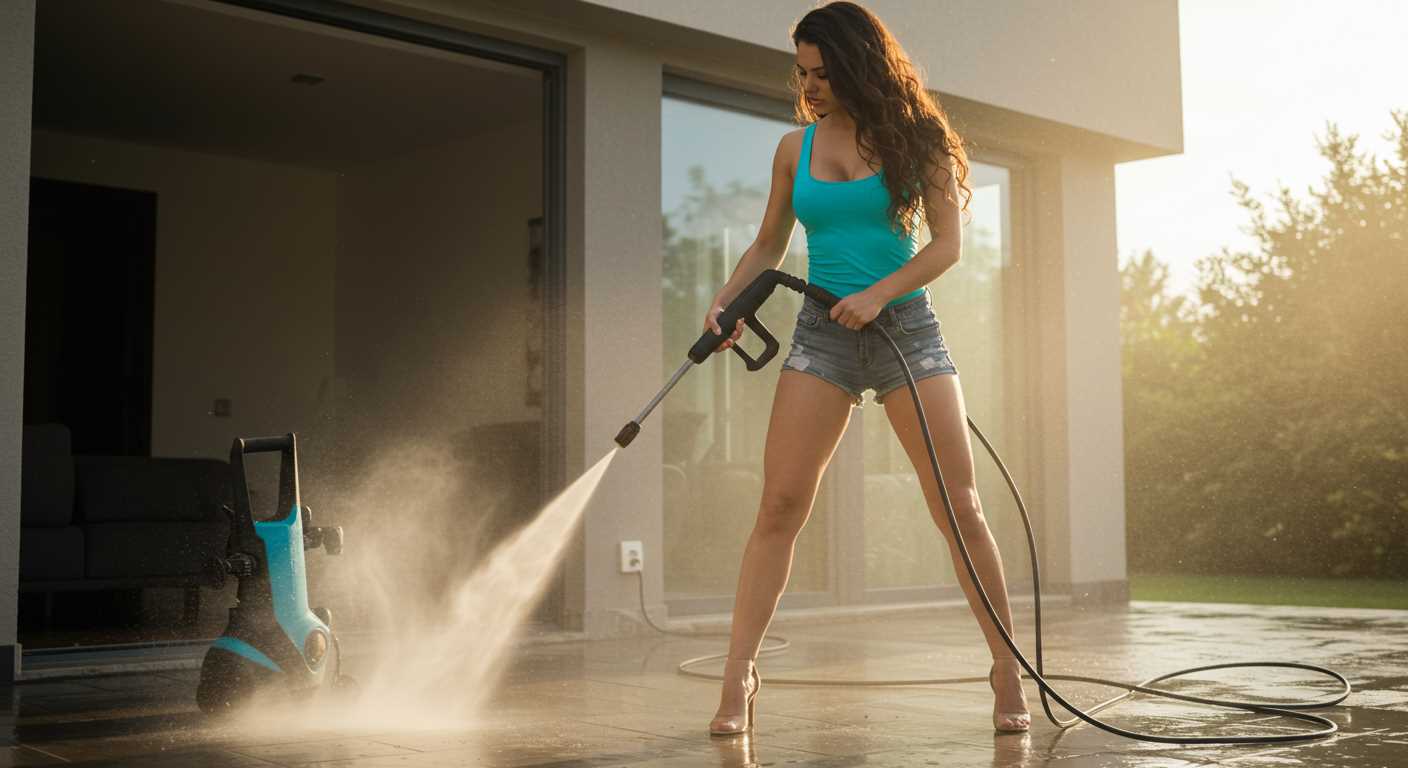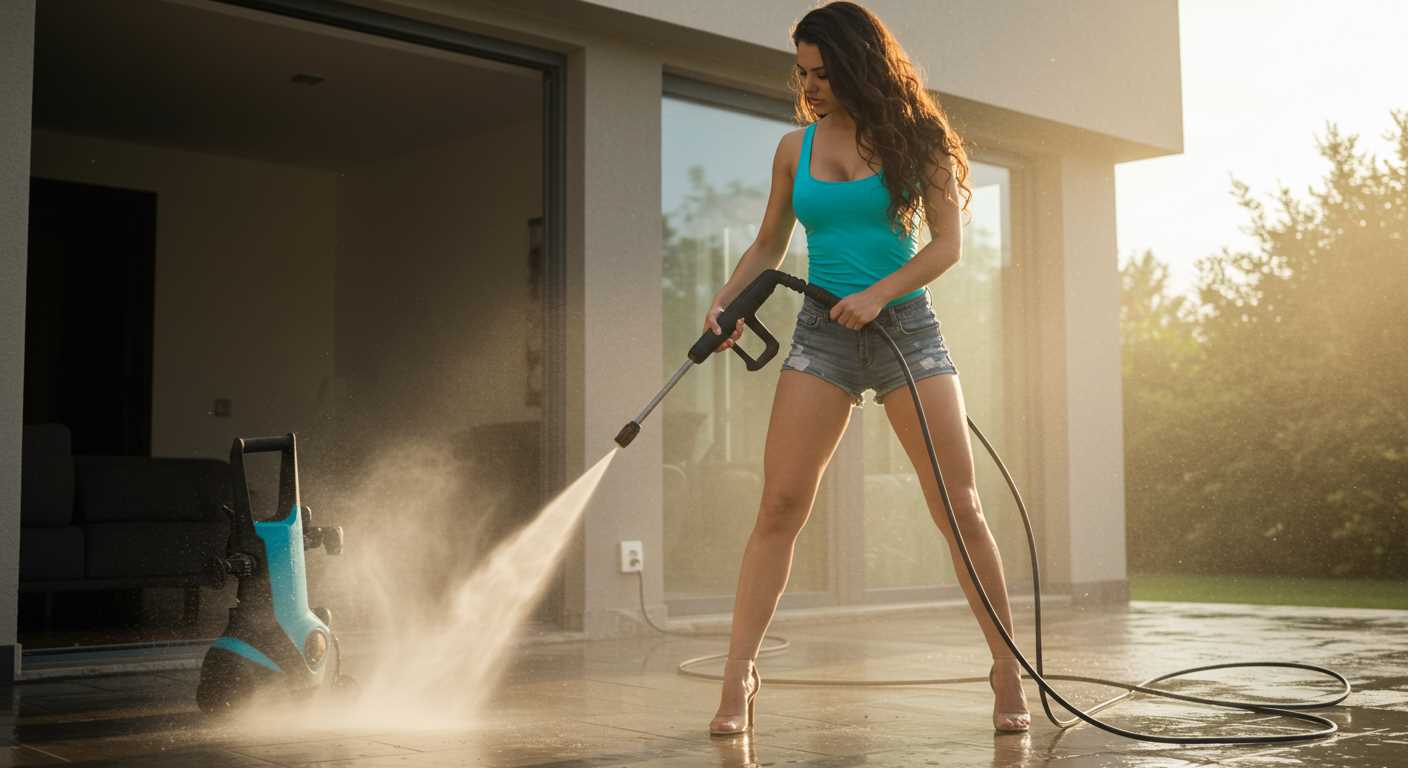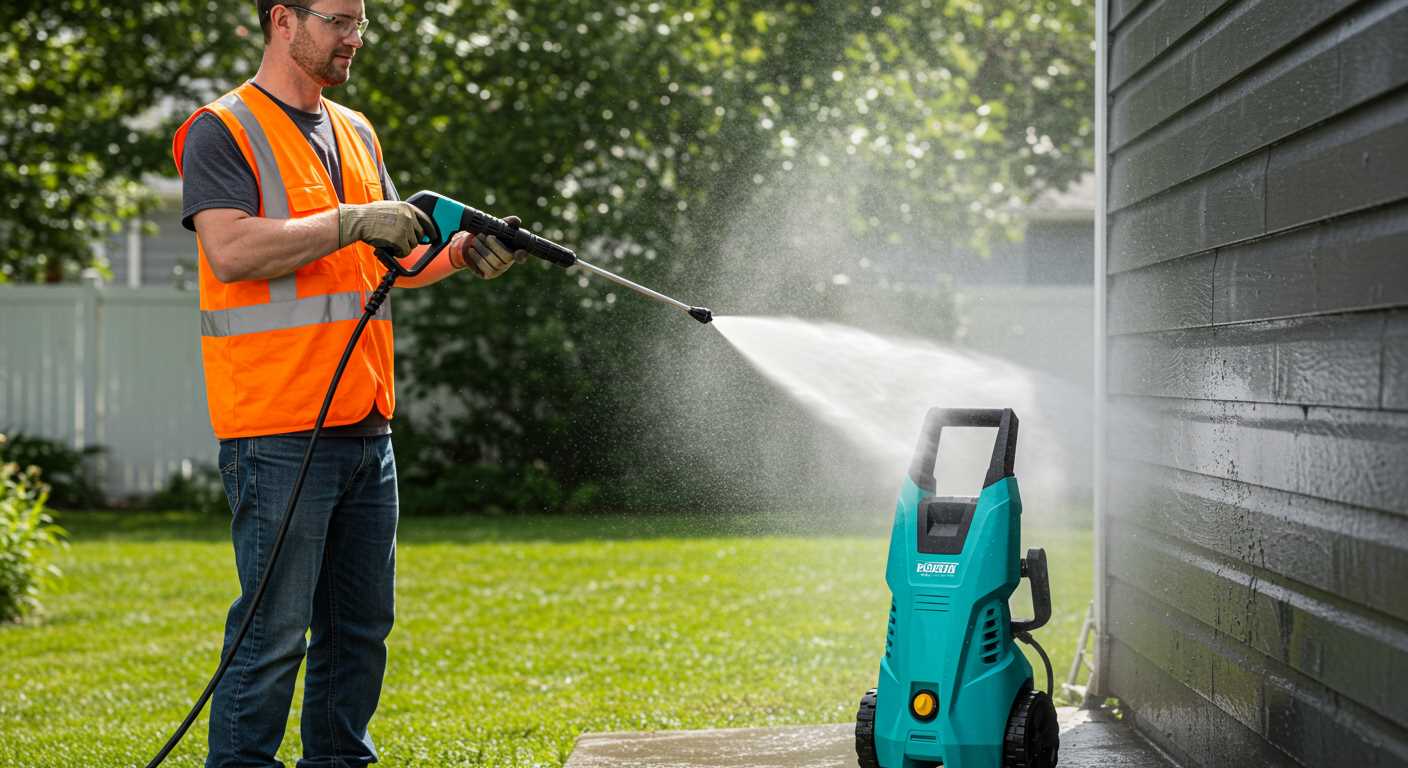
When it comes to maintaining the beauty and integrity of stone surfaces, using the right cleaning solution is crucial. Over the years, I have tested numerous products and techniques to find the best stone cleaner for pressure washers, and I’m excited to share my insights with you. This article delves into the top options available, ensuring that your stone surfaces remain pristine, whether it’s your driveway, patio, or garden path.
This guide is designed for homeowners, DIY enthusiasts, and anyone who wants to invest in the longevity of their stone surfaces. If you’ve ever struggled with stubborn stains, grime, or algae on your stone, you’ll find valuable information here. I will cover a range of cleaners, from eco-friendly options to powerful commercial products, so you can choose what suits your needs best.
In summary, this article provides a comprehensive review of the best stone cleaners for pressure washers, along with tips on how to effectively use them. You’ll gain insights into the features that make these products stand out, as well as practical advice on achieving the best results. With the right cleaner in hand, you can restore and protect your stone surfaces with ease.
Understanding Stone Types and Their Cleaning Needs
When it comes to cleaning stone surfaces, understanding the type of stone is crucial for achieving optimal results without causing damage. Different types of stones have varying levels of porosity, hardness, and susceptibility to staining, which directly influence the cleaning methods and products that should be used.
Natural stones such as granite, marble, and limestone each have unique characteristics that dictate their maintenance requirements. For instance, granite is a hard, dense stone that is generally more resistant to stains and scratching, making it easier to clean. In contrast, limestone is more porous and can be more easily damaged by acidic cleaners, necessitating a gentler approach.
Key Considerations for Cleaning Different Stone Types
- Granite: Durable and resistant to stains, but should be cleaned with pH-neutral cleaners to preserve its finish.
- Marble: Prone to etching from acidic substances; use mild cleaners and avoid vinegar or lemon-based products.
- Limestone: Requires careful cleaning due to its porosity; use gentle cleaners and avoid high-pressure settings.
- Slate: Generally robust, but textured surfaces can trap dirt; a softer brush may be needed for effective cleaning.
- Travertine: Similar to limestone, it is porous and can be damaged by harsh chemicals; stick to neutral pH cleaners.
When selecting a cleaning method, consider the stone’s finish as well. Polished stones may require different care compared to honed or textured surfaces. Additionally, always test any cleaning solution on a small, inconspicuous area before applying it to the entire surface to ensure compatibility and prevent damage.
Key Features to Consider in a Stone Cleaner
When selecting a cleaner for stone surfaces, it’s essential to focus on specific features that ensure effective cleaning without causing damage. The composition of the cleaner plays a significant role in its effectiveness, particularly when dealing with various types of stone such as granite, marble, or limestone. A suitable cleaner should be formulated to tackle tough stains while being gentle enough not to etch or dull the stone’s surface.
Another important aspect is the pH level of the cleaner. Neutral pH cleaners are generally the safest choice for stone surfaces, as acidic or alkaline formulas can lead to deterioration over time. Additionally, the ease of use is a critical factor. A cleaner that can be easily applied and rinsed off saves time and effort, making the cleaning process more efficient.
Features to Enhance Cleaning Effectiveness
- Biodegradable Ingredients: Look for cleaners that use environmentally friendly components to protect both the stone and the surrounding ecosystem.
- Stain Removal Capability: A good stone cleaner should effectively break down and lift various stains, including oil, dirt, and mildew.
- Non-Toxic Formula: Ensure the cleaner is safe for indoor use, especially if you have pets or children.
- Compatibility: The cleaner should be suitable for the specific type of stone you have, as different stones have unique care requirements.
In conclusion, when searching for a stone cleaner, consider its composition, pH level, ease of use, and additional features that enhance cleaning performance. These aspects will help maintain the beauty and longevity of your stone surfaces while ensuring a safe and efficient cleaning process.
Comparative Review of Leading Stone Cleaners
When it comes to maintaining the beauty and longevity of stone surfaces, selecting the right cleaner is crucial. Various products on the market claim to be the best for pressure washing stone, but a thorough comparison reveals significant differences in performance, safety, and ease of use. Understanding these aspects can help consumers make informed choices.
Different stone cleaners are formulated to tackle specific issues, such as removing dirt, grime, algae, and even biological growth. The effectiveness of each cleaner can vary based on the type of stone being treated and the nature of the stains present. This review delves into the key features and benefits of several leading stone cleaning products.
Key Features to Consider
- pH Level: The acidity or alkalinity of a cleaner can affect not only its cleaning power but also its compatibility with various stone types.
- Biodegradability: Environmentally friendly formulations are increasingly preferred, especially for outdoor use.
- Concentration: Highly concentrated cleaners may require dilution, while ready-to-use options offer convenience.
- Safety: Non-toxic and non-corrosive ingredients are essential for both user safety and the preservation of the stone.
Performance Comparison
| Feature | Cleaner A | Cleaner B | Cleaner C |
|---|---|---|---|
| Effectiveness on Algae | High | Moderate | High |
| Safe for Natural Stone | Yes | Yes | No |
| Ease of Use | Ready-to-use | Requires dilution | Ready-to-use |
| Eco-friendly | Yes | No | Yes |
In conclusion, when selecting a cleaner for stone surfaces, it is essential to consider not only the cleaning power but also the compatibility with the stone type and environmental impact. By comparing these key features, users can confidently choose a product that meets their specific needs for effective stone maintenance.
How to Use a Pressure Washer for Effective Stone Cleaning
Using a pressure washer can be an efficient way to maintain the cleanliness and appearance of stone surfaces. Whether you are dealing with patios, driveways, or stone walls, the right technique can make a significant difference in achieving a spotless finish. Understanding how to properly operate a pressure washer is essential for effective stone cleaning.
Before starting the cleaning process, it is vital to prepare the area. Remove any furniture, plants, or debris that may obstruct the cleaning. Additionally, check the stone surfaces for any damage or loose stones that could be dislodged during cleaning.
Steps for Effective Stone Cleaning
- Select the Right Nozzle: Choose a nozzle that provides the appropriate spray pattern. A fan nozzle is typically ideal for stone surfaces, as it covers a larger area without concentrating too much pressure in one spot.
- Adjust the Pressure: Set the pressure level according to the type of stone. Softer stones may require lower pressure to avoid damage, while harder stones can withstand higher pressure.
- Pre-treat Stains: For stubborn stains, consider applying a suitable stone cleaner before using the pressure washer. Allow it to sit for the recommended time to penetrate the stains.
- Start from the Top: When washing vertical surfaces, always start from the top and work your way down. This prevents dirty water from running down over clean areas.
- Maintain a Consistent Distance: Keep the nozzle at a consistent distance from the surface, typically around 18 to 24 inches, to ensure even cleaning without causing damage.
- Rinse Thoroughly: After cleaning, rinse the stone thoroughly to remove any remaining cleaner or debris. This will help prevent residue build-up.
By following these steps, you can effectively clean stone surfaces using a pressure washer. Regular maintenance will not only enhance the appearance of your stone but also prolong its life.
Safety Tips When Cleaning Stone Surfaces
Cleaning stone surfaces can be a rewarding task, but it is essential to prioritise safety to avoid accidents and damage. Whether you are using a pressure washer or any other cleaning method, understanding the risks involved is crucial.
Before starting the cleaning process, ensure that you are adequately equipped. This includes personal protective equipment such as gloves, goggles, and sturdy footwear to safeguard against slipping and flying debris.
Preparation and Precautions
Proper preparation can significantly enhance safety when cleaning stone surfaces. Here are some important considerations:
- Inspect the Area: Check for any loose stones, cracks, or other issues that could pose a risk.
- Clear the Surroundings: Remove any obstacles or debris that may hinder your movement or create hazards.
- Choose the Right Equipment: Ensure that your pressure washer is suitable for the stone type and the cleaning task at hand.
Additionally, always follow the manufacturer’s instructions for both the pressure washer and any cleaning solutions used. This helps to prevent damage to the stone and ensures effective cleaning.
Operational Safety
When operating the pressure washer, keep the following safety tips in mind:
- Maintain a Safe Distance: Keep the nozzle a safe distance from the stone surface to avoid damage.
- Control the Pressure: Adjust the pressure settings according to the type of stone you are cleaning.
- Watch Your Footing: Be cautious of slippery surfaces, especially when wet.
By taking these precautions, you can ensure a safe and effective cleaning experience while preserving the integrity of your stone surfaces.
Maintaining Your Pressure Washer After Stone Cleaning
After using your pressure washer for stone cleaning, it is essential to perform proper maintenance to ensure its longevity and optimal performance. Neglecting maintenance can lead to decreased efficiency and potential damage, which may require costly repairs or replacements.
By following a few simple steps, you can keep your pressure washer in excellent condition and ready for your next cleaning task. This will not only save you time and money in the long run but also enhance the effectiveness of your cleaning equipment.
- Flush the System: After cleaning, run clean water through the pressure washer to remove any remaining cleaning solution and debris.
- Inspect Hoses and Connections: Check for any signs of wear or damage. Replace any damaged hoses or fittings promptly.
- Clean the Filter: Remove and clean the water intake filter to prevent clogs and ensure a steady flow of water.
- Check Oil Levels: For gas-powered models, check the oil levels and top up if necessary to keep the engine running smoothly.
- Store Properly: Store your pressure washer in a dry, sheltered location, and consider using a cover to protect it from dust and moisture.
In conclusion, regular maintenance of your pressure washer not only prolongs its life but also ensures that it operates at peak performance. By following these maintenance tips after stone cleaning, you can enjoy efficient and effective cleaning results every time you use your pressure washer.
Top 10 Best Stone Cleaner For Pressure Washer

Best Stone Cleaner For Pressure Washer
Features
| Part Number | SIZE I |
| Model | Universal Stone |
| Size | 650 g (Pack of 1) |
Video:
FAQ:
What is the best type of stone cleaner to use with a pressure washer?
The best type of stone cleaner for use with a pressure washer is one that is specifically formulated for natural stone surfaces. Look for cleaners that are pH-neutral and biodegradable to avoid damaging the stone. Some popular options include sodium hypochlorite-based cleaners for algae and mould removal or citric acid-based cleaners for general dirt and grime. Always check the product label to ensure compatibility with your specific type of stone.
Can I use regular household cleaners in my pressure washer for cleaning stone?
Using regular household cleaners in a pressure washer is not recommended, as they may not be suitable for high-pressure application and could damage both the washer and the stone surface. Additionally, many household cleaners contain harsh chemicals that could cause discolouration or etching on stone. Stick to cleaners that are specifically designed for use with pressure washers and safe for stone surfaces.
How do I properly dilute stone cleaner for use in a pressure washer?
To properly dilute stone cleaner for use in a pressure washer, follow the instructions provided by the manufacturer on the product label. Typically, you will mix a certain amount of cleaner with water in a ratio specified by the manufacturer, often ranging from 1:5 to 1:10, depending on the concentration of the cleaner. Ensure that you mix it in a separate container before pouring it into the pressure washer’s detergent tank to avoid any residue build-up.
Are there any eco-friendly stone cleaners suitable for pressure washers?
Yes, there are several eco-friendly stone cleaners available that are suitable for use with pressure washers. Look for products that are biodegradable and free from harsh chemicals. Many brands offer natural formulations that use ingredients like citrus extracts or plant-based surfactants. These cleaners are effective at removing dirt and stains while being safer for the environment and your stone surfaces.
What precautions should I take when using a pressure washer with stone cleaner?
When using a pressure washer with stone cleaner, take several precautions to protect both yourself and the stone surface. Always wear protective eyewear and gloves to shield yourself from splashes. Test the cleaner on a small, inconspicuous area of the stone first to check for any adverse reactions. Maintain a safe distance while spraying to avoid damaging the stone, and never use a pressure setting that is too high, as this could cause chips or cracks. Rinse the area thoroughly after cleaning to remove any residue from the cleaner.




.jpg)


